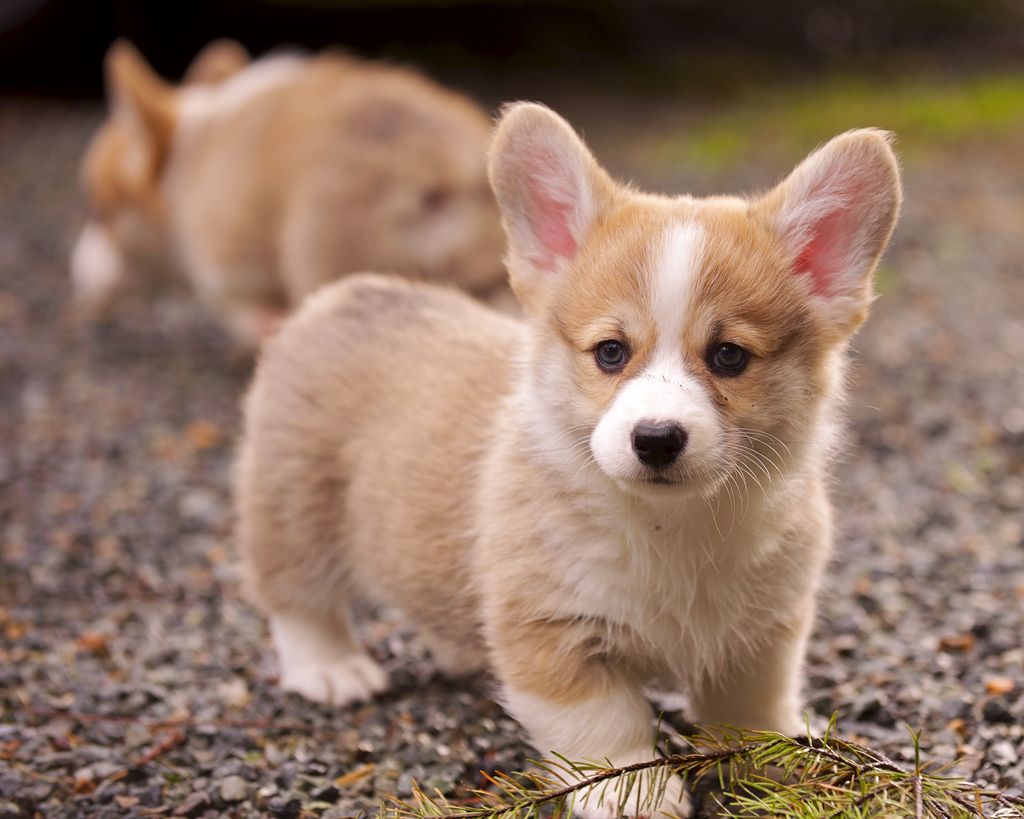Corgi puppies have captured the hearts of dog lovers around the world with their charming personalities, playful nature, and adorable looks. These small, sturdy dogs, originally bred for herding, have become beloved family pets and social media stars. In this comprehensive guide, we will explore everything you need to know about corgi puppies, from their history and characteristics to training tips and health considerations.
Join us as we uncover the fascinating world of corgi puppies, offering expert advice and authoritative information that you can trust. Let’s embark on this journey to learn why corgi puppies are not just pets but cherished family members!
Table of Contents
- 1. History of Corgi Puppies
- 2. Characteristics of Corgi Puppies
- 3. Corgi Puppy Biographies
- 4. Training Your Corgi Puppy
- 5. Health Considerations for Corgi Puppies
- 6. Nutrition for Corgi Puppies
- 7. Socializing Your Corgi Puppy
- 8. Adopting a Corgi Puppy
1. History of Corgi Puppies
Corgis are one of the oldest herding breeds in existence, with a history that dates back over a thousand years. Originating from Wales, these dogs were primarily used for herding cattle and other livestock. Their low stature and agility allowed them to nip at the heels of animals while avoiding kicks.
The breed is divided into two main types: the Pembroke Welsh Corgi and the Cardigan Welsh Corgi. The Pembroke is known for its shorter tail, while the Cardigan has a long, bushy tail. Both breeds share a common ancestry, but they developed distinct traits over time.
Corgis gained popularity in the 20th century, particularly after being adopted by Queen Elizabeth II. Her love for Pembroke Welsh Corgis brought significant attention to the breed, and they became a symbol of royalty and charm.
2. Characteristics of Corgi Puppies
Corgi puppies are known for their unique physical and behavioral characteristics. Here are some key traits:
- Size: Corgis are small to medium-sized dogs, typically weighing between 25 to 30 pounds.
- Coat: They have a thick double coat, which requires regular grooming.
- Temperament: Corgis are intelligent, friendly, and outgoing, making them great companions.
- Energy Level: These puppies are energetic and require regular exercise to stay healthy.
3. Corgi Puppy Biographies
Corgi puppies have unique personalities and backgrounds, often shaped by their breeding and upbringing. Below are examples of popular corgi puppies and their stories.
3.1 Personal Data and Biodata
| Name | Breed | Age | Owner |
|---|---|---|---|
| Waffles | Pembroke Welsh Corgi | 6 months | Sarah Johnson |
| Buddy | Cardigan Welsh Corgi | 1 year | Mike Smith |
4. Training Your Corgi Puppy
Training your corgi puppy is essential for a well-behaved pet. Here are some effective training tips:
- Start Early: Begin training as soon as you bring your puppy home.
- Positive Reinforcement: Use treats and praise to encourage good behavior.
- Consistency: Be consistent with commands and rules to avoid confusion.
- Socialization: Expose your puppy to different people, pets, and environments.
5. Health Considerations for Corgi Puppies
Corgi puppies are generally healthy, but they can be prone to certain health issues. Regular vet check-ups and vaccinations are crucial. Common health concerns include:
- Hip Dysplasia: A genetic condition that affects the hip joints.
- Obesity: Corgis are prone to weight gain, so monitor their diet and exercise.
- Eye Conditions: Regular eye exams can help detect issues early.
6. Nutrition for Corgi Puppies
Proper nutrition is vital for the growth and development of corgi puppies. Here are some dietary guidelines:
- High-Quality Puppy Food: Choose food formulated for puppies to meet their nutritional needs.
- Regular Feeding Schedule: Establish a feeding routine to aid digestion.
- Monitor Portion Sizes: Be mindful of portions to prevent obesity.
7. Socializing Your Corgi Puppy
Socialization is key to raising a well-adjusted corgi puppy. Here are some tips for effective socialization:
- Puppy Classes: Enroll in puppy training classes to expose your corgi to other dogs.
- Playdates: Arrange playdates with other friendly dogs.
- Public Outings: Take your puppy to parks, pet stores, and other public places.
8. Adopting a Corgi Puppy
If you are considering adopting a corgi puppy, here are some steps to follow:
- Research: Learn about the breed and its needs before adopting.
- Find a Reputable Breeder or Shelter: Look for ethical breeders or rescue organizations.
- Prepare Your Home: Ensure your home is safe and ready for a puppy.
Conclusion
In conclusion, corgi puppies are delightful companions that bring joy and love to any household. Understanding their history, characteristics, and care requirements is essential for anyone considering adding a corgi to their family. We hope this guide has provided you with valuable information to help you on your journey with a corgi puppy.
We encourage you to leave a comment below, share this article with fellow dog lovers, or explore more articles on our site for additional insights!
Penutup
Thank you for reading our comprehensive guide on corgi puppies! We hope you found it informative and engaging. Don’t forget to visit us again for more articles and tips on pet care.
You Might Also Like
Will Geer: The Life And Legacy Of A Legendary ActorNaomi Swann: The Rising Star In The Adult Entertainment Industry
Davy Crockett Restaurant: A Culinary Journey Through American History
State Farm Careers: Unlocking Opportunities In The Insurance Industry
Zerella Skies: A Deep Dive Into The Life And Career Of A Rising Star
Article Recommendations
- Alex Start X New 2024 Age
- Jameliz Onlyfan Leak
- Rory Feek New Wife
- Baby Suji
- Loni Willison Now
- Donald Trump Jr Kimberly Guilfoyle
- Aubrey Plaza Nude Leak
- Jenna Ortega Sex Tape
- Is Michael Loftus Gay
- Vegamovies Re Hindi Dubbed

